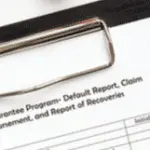A tax collector bond is often required to ensure they act ethically and in the public’s best interest to collect taxes. This legally binding agreement guarantees compliance with laws and regulations, safeguarding taxpayers and government agencies.
Did you know that tax collectors are responsible for collecting taxes on behalf of other government agencies?
So, what exactly is a tax collector bond, and how does it function within the realm of municipal tax collection? Let’s dive in and explore this essential aspect of public finance.
Key Takeaways
- Tax collector bonds guarantee that tax collectors comply with state laws and regulations, remitting taxes collected to the relevant government agency.
- Poor financial decisions can affect eligibility for a surety bond, making it essential to practice good financial habits.
- A Tax collector bond must be regularly maintained and renewed by completing an invoice from the surety company before expiration.
Understanding Tax Collector Bonds

A tax collector bond creates a legally binding contract between the principal (tax collector), Obligee or government agency, and the company that issues it.
The required bond amount is 100% of public funds managed by collectors. The protection afforded can vary greatly depending on jurisdiction and other agencies’ requirements.
In essence, this form serves as security to make certain duties executed for taxpayers’ best interest while abiding by guidelines set forth by governing bodies.
The Role of Tax Treasurers and Tax Collectors
Tax collectors and municipal treasurers perform their duties and a pivotal role in managing public funds.
The Treasury Department is responsible for obtaining, monitoring, and safeguarding financial assets owned by municipalities within the county and municipal while supplying pertinent tax data. They function as bankers to receive taxes due from taxpayers within municipalities and the region.
Conversely, it’s up to tax collectors to guarantee that individuals and businesses pay their dues on time. They must also guide filing returns and provide valuable information regarding taxation regulations.
Both entities collaborate so taxes and duties on business are collected properly, enabling them to successfully do business and administer public finance and business affairs accurately at all times.
Need a Florida Tax Collector Bond?
Tax collectors in Florida utilize a variety of surety bonds to ensure tax collection. These include public officials who collect taxes, fuel, liquor and tobacco taxes, as well as citrus dealer’s business receipts collect taxes.
Florida Treasurers & Tax Collectors (Dual Position) Bond
A Florida Treasurers and Tax Collectors Bond / Florida Treasurers and Tax Collectors Bond – All
Florida Treasurers & Tax Collectors-All Subordinates Bond
Surety Bonds Explained
Surety bonds involve three parties: the principal, surety and obligee. These contracts guarantee that tax collectors comply with state regulations while conducting their duties in collecting taxes for other government agencies.
The bond amount is calculated by factoring in how much a particular tax collector alone will be responsible for bringing into public coffers. This sum must then be confirmed and activated before it can take effect properly.
Sureties monitor all bonded arrangements on an ongoing basis to ensure compliance from both sides of the agreement – those providing funds (taxes) as well as collection agents themselves, remain above board regarding appropriate laws and policies surrounding these transfers.
Requirements for Tax Collector Surety Bond
 Tax collectors, required by government agencies to secure a tax collector surety bond in order to facilitate the collection of taxes and duties, must obtain and pay a certain amount of money as well prove their financial capability.
Tax collectors, required by government agencies to secure a tax collector surety bond in order to facilitate the collection of taxes and duties, must obtain and pay a certain amount of money as well prove their financial capability.
It is highly recommended that they seek advice and find out what exactly the said agency needs from them when it comes to getting this type of a tax collector surety bond together. Sureties should also be consulted for any other criteria specified regarding its acquisition.
Bond Amount Determination
When it comes to the bond amount amounts for tax collectors, judges have the authority to adjust them according to the severity of their offenses and their criminal pasts.
They will look into whether or not these individuals are likely going to attend court hearings when required.
A bail schedule may be consulted as a reference point, but ultimately any changes should reflect upon necessary risks connected with such responsibilities given.
This process ensures that each bond amount is suitable enough based on all pertinent factors associated with taxes collection duties in mind.
Poor Financial Decisions and Tax Collector Bond Eligibility
Tax collectors looking to obtain a surety bond must keep up with good financial habits since poor financial decisions and choices may have an adverse effect on their eligibility.
Rating agencies and issuers examine aspects like creditworthiness and economic stability when deciding if someone or some entity is qualified for the security. Late payments, defaults, or carrying too much debt can signal elevated risks of defaulting on fees leading to lower scores or even being barred from obtaining it.
Sound money management is key in determining one’s suitability regarding this type of loan product.
The Process of Obtaining a Tax Collector Bond
 The surety company overseeing a tax collector and the bond amounts and amount and requires the submission of certain documents within 10 days after receiving two notices.
The surety company overseeing a tax collector and the bond amounts and amount and requires the submission of certain documents within 10 days after receiving two notices.
This includes an application form, financial statement and copy of the actual bond amount bond amount in order to be approved by the Court. Once this approval is given, it needs to be activated with ongoing monitoring from the surety company involved.
Application and Documentation
In order to get a tax collector surety bond required, the first step is to gather all required data and documentation including financial statements.
Then submit these materials for assessment by the tax collector surety bond provider who will decide if you are eligible or not.
Working with Surety Bonds Co.

Tax collectors wanting to obtain a a tax collector bond or surety bond, can benefit from the expertise offered by Surety Bonds Co.
Our surety professionals are trained in providing support with tax collector bonds and surety bonds, including helping you obtain one and find an appropriate price for your requirements.
They have authorization to issue such types of bonds that also come with competitive rates. They also offer assistance when it comes time for renewal so all necessary paperwork is completed correctly.
Claims Against A Tax Collector Bond

Tax collector bonds can be subjected to claims if collectors fail to abide by specific terms of the contract, have their damages granted in court or are not compliant with expected standards for a tax-collector.
These may lead to monetary losses, loss of reputation and possible litigation against tax collector bond issuers.
In order minimize potential consequences from such events, it is crucial that all parties involved – tax collectors included – adhere strictly both financially and legally when dealing with bond amounts and taxes collected via these bonds.
Reasons for Claims
 Claims raised against tax collector bonds are often related to legal cases such as disputes over vehicle ownership, tax collector bond back funds not being enough to cover all claims or non-observance of federal regulations concerning municipal debt issue.
Claims raised against tax collector bonds are often related to legal cases such as disputes over vehicle ownership, tax collector bond back funds not being enough to cover all claims or non-observance of federal regulations concerning municipal debt issue.
Such instances can lead the issuer of said tax collector bonds to face financial losses due to their liability for fines and any other possible penalties that legally bound to come with it. All in all, a taxable tax collector also must be legally bound by law when dealing with these particular kinds of public finance instruments known as tax collector ‘bonds’.
Handling and Resolving Claims of a Tax Collector Bond
Tax collector bonds are a form of surety, and the process for addressing and settling claims against them may differ depending on jurisdiction.
Though, it involves defaulting on the the tax collector bond firstly followed by submitting a complaint to be evaluated before resolution or settlement of claim is reached.
If the claim is valid, then an agreement between claimant(s) and issuer (the tax collector surety bond or company) can be made involving payment of some amount as compensation.
To ensure best practice when dealing with tax collector bonds related matters, professional advice should always be sought from relevant legal authorities before taking any action steps forward.
Renewal and Maintenance of A Tax Collector Bond
 For tax collectors, renewing and maintaining their bonds requires some steps. A form from the surety company should be completed first prior to bond expiration. Invoices for renewal may have already been sent out months ahead by the principal while payments must be made on time before the expiry date of the bond passes through so that it can stay active in a 12 month period Until another annual cycle begins again as long as proper upkeep is done with regards to this kind of security instrument.
For tax collectors, renewing and maintaining their bonds requires some steps. A form from the surety company should be completed first prior to bond expiration. Invoices for renewal may have already been sent out months ahead by the principal while payments must be made on time before the expiry date of the bond passes through so that it can stay active in a 12 month period Until another annual cycle begins again as long as proper upkeep is done with regards to this kind of security instrument.
Tax Collector Bond Renewal Process
In order to ensure the tax collector’s compliance with regulations, their surety bond must be renewed.
The process for renewing specific terms of this type of surety bond required, usually involves an invoice being sent from a surety provider and received by the principal some time before its expiration – typically 30, 60 or 90 days in advance.
At that point, payment needs to be made in order for them to maintain coverage through another term.
Once payment has been received, a new surety bond will be issued on behalf of the principal so they can still collect taxes and continue collecting taxes legally as directed under official guidelines.
Monitoring Tax Collector Bond Status
It is imperative to regularly review the status of a tax collector bond in order to remain compliant and maintain operations. This can be accomplished by consulting with the the tax collector, surety firm or issuing agency obtaining updates on any changes that could affect its standing.
Keeping up-to-date records will enable collectors to avoid possible legal battles due to their negligence in regards to their tax collector bonds’ status. Knowing the condition of one’s tax collector bond prevents potential claims against them from occurring.
Summary
Tax collectors are essential for the lawful collection of taxes on behalf of government agencies, and their use of tax collector bonds is integral to protecting both taxpayers’ interests as well as those of government agencies and entities responsible to collect taxes and for collecting.
Understanding how these types of bonds work (from obtaining them through maintenance requirements) allows all three parties involved in this process to act with integrity and professionalism while minimizing potential claims or legal issues that may arise.
Frequently Asked Questions
What is the purpose of a surety bond?
A surety bond is a contract between three parties, in which the first party ensures that another will fulfill its obligations to a third party.
Through this agreement, the issuing of surety bonds serves as a guarantee for satisfaction about specific responsibilities or agreements.
What is surety underwriting?
Surety underwriting aims to determine the risk associated with a principal and supply them with appropriate surety bonds.
The assessment includes financial strength, work experience in their field, and quality of past projects completed on time.
Thus providing assurance that potential claims will be minimal. Sureties examine all available information when determining the best price and what level of surety the best price is bond to provide for each principal’s particular circumstances.


